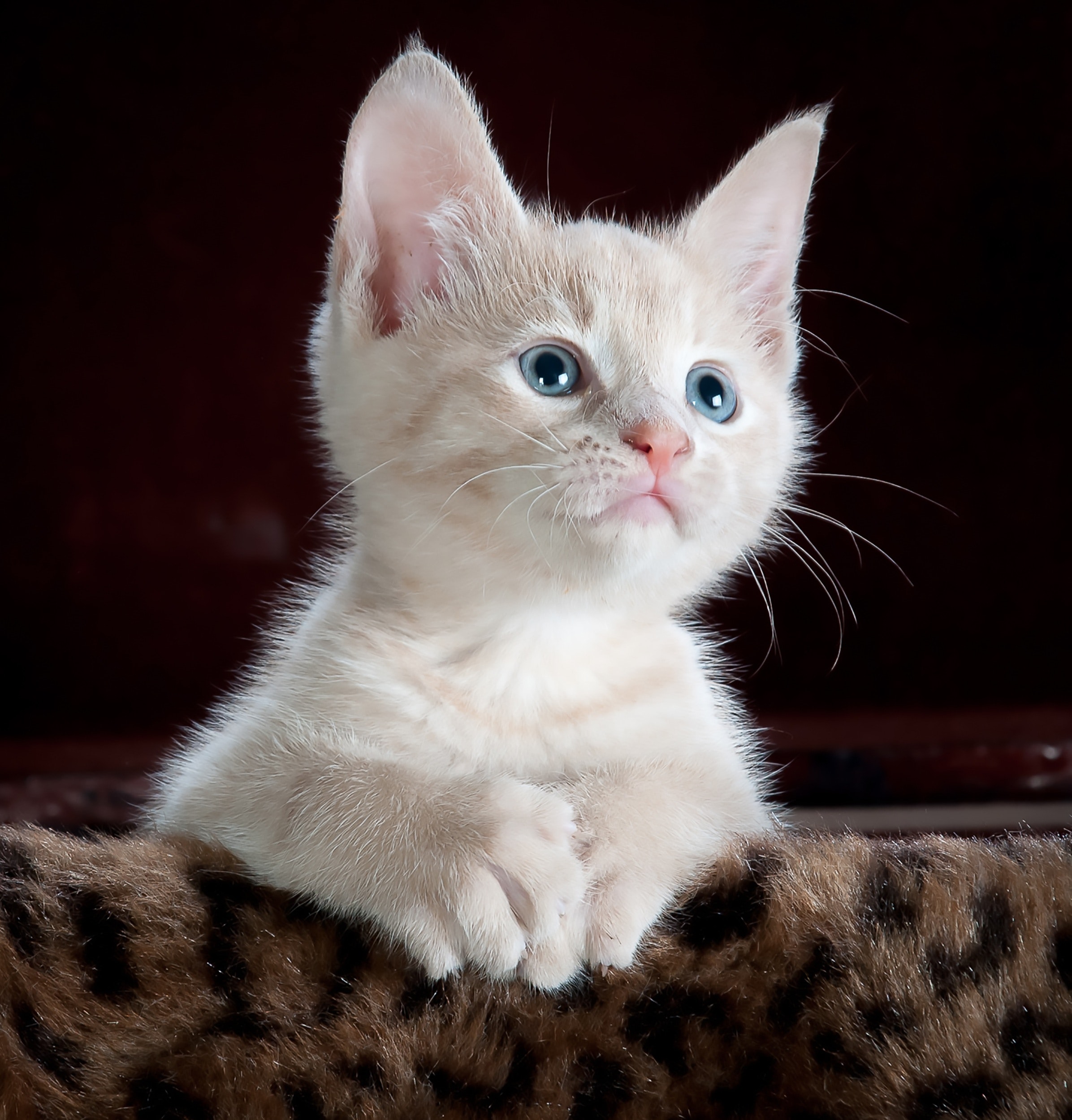
If you have a cat, or are planning to get one, just know that she needs everything that’ll help! A collar, food, water, a leash, and much more! Each cat has special needs, from lions to leopards, even housecats have them! To get started, research or read this post!
Food

It’s hard to feed your cat human foods when they are picky. So, feed your cat normal food daily, and try human foods once in a while. Supposedly:
Cooked Eggs (Raw is super harmful)
Cooked Fish (Raw is super harmful)
Meat (Must be cooked properly)
Bananas (Do not overfeed)
Spinach (NOT DAILY)
Oatmeal
Pumpkin (Must be cooked)
Carrots (Must be cooked)
Carrots and eggs should be cooked and cut into small pieces, and don’t feed them to your cat daily. Only once or twice a week.
Oatmeal is good for cats, but if your cat has lactose intolerant, or has an allergy to milk, make oatmeal with water, instead.
Don’t feed your cat spinach AT ALL if he/she has kidney problems. It’s bad for them.
Next up:
Training

Training is optional (unless you take an indoor cat outside daily) and it is also easy to do.
All you need is a treat or clicker. When your cat does something you want him/her to do, praise the cat and give your cat a treat!
Note: If you don’t have a clicker, you can use a pen’s clicker.
For example: Lift a paw. You must hide a treat in your hand, say ‘lift a paw’ and if your cat lifts a paw, then reveal the treat. This makes your cat react: “Hey, if I do this every time I lift a paw, I’ll get a treat!”
Please note that you need to do this daily before your cat reacts.
Also, before you decide to train your cat, research of what motivates it. Most cats motivate to food, for one thing. And it is best to train your cat when he/she is hungry.
Try to train your cat at an early age, around 5 or 3 months. The more energetic your cat is, the more he/she’ll want to train!
Exercise

Cats are hardballs, just like puppies. And they love to play. They either play-fight with another kitten (or even humans!) to get exercise, or surprise-attack their humans for fun!
Cats can actually play fetch. It just takes some treats and training!
To teach a cat to play fetch, visit: How to Play Fetch With Your Cat: 9 Steps (with Pictures) – wikiHow Pet
Cats need rest but are clearly energetic when they are youthful. In order to give your cat exercise, find a flying cat toy or a thick string, like this one:

Anyway, cats are born hunters and love, love, love to chase things. Like a laser pointer or a string!
Note: Never EVER give your cat a ball of yarn. It is really dangerous.
When you play tug-of-war with your kitty-cat, be sure to never ever tug HARD, because it hurts your kitten’s teeth. Play gently and let your kitten win!
The reason why thick string is the best recommendation for cats to tug and chase on, is because thin string can break easily, and your cat to mistake it as cat food and eat it!
You can also train your cat or kitten to NOT eat specific things, like paper or yarn. Here is another link to help: Why Is My Cat Eating Paper? (animalpath.org) It is not normal for a cat to do this.
Health Problems

Cat Health Problems. The last thing you want your cat to have. To stay on the safe side, here are some health problems cats have:
- Vomiting
- Fleas
- Tapeworms
- Diarrhea
- Eye Problems
- Gum Disease
- Cancer
- Diabetes
- Rabies
- Heartworm
Please research about these TOP TEN diseases.
Last but not least:
Personalities

Here is the last thing you need to know about cats: Personalities. This is important because most cats tend to be aggressive, and some aren’t. Cats can attack, and it takes lots of training to help a cat stop this. Here are some personalities cats can have:
- Aggressive
- Friendly
- Timid
- Energetic
- Lazy
Cats can commonly have these personalities. Here is yet another link to help train your cat not to bite: How to Stop a Cat from Biting and Scratching
That’s a wrap! Take care of your pets and always help out other animals, too!
Goodbye!

Hope you liked reading!